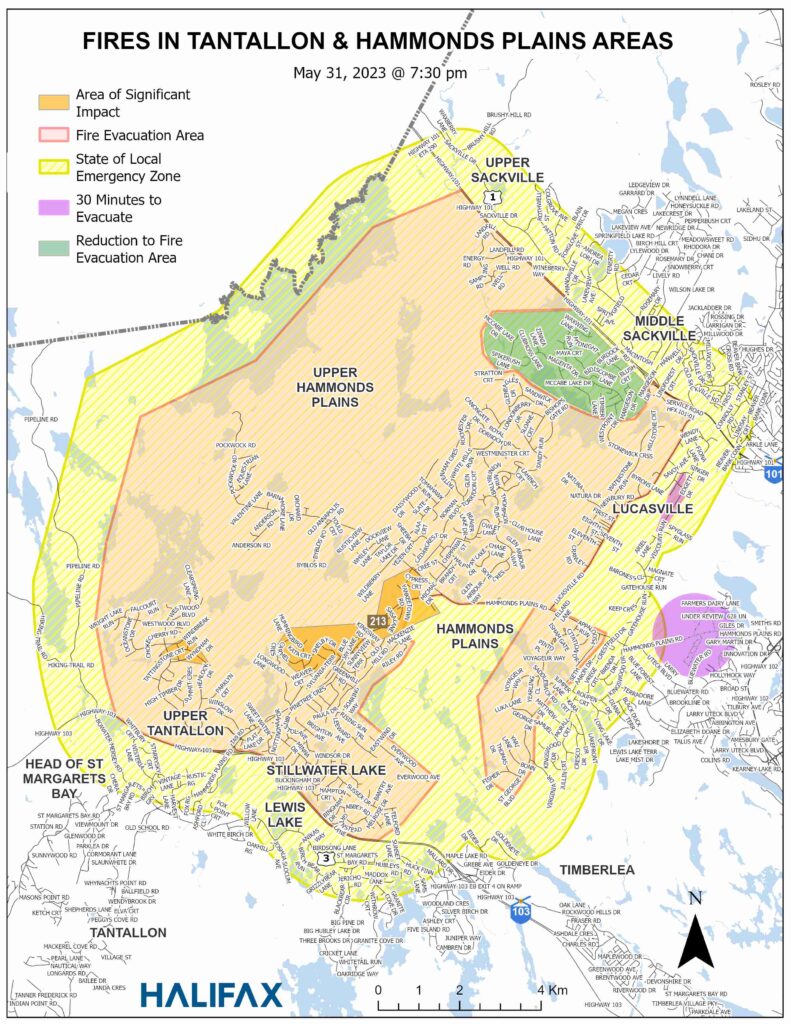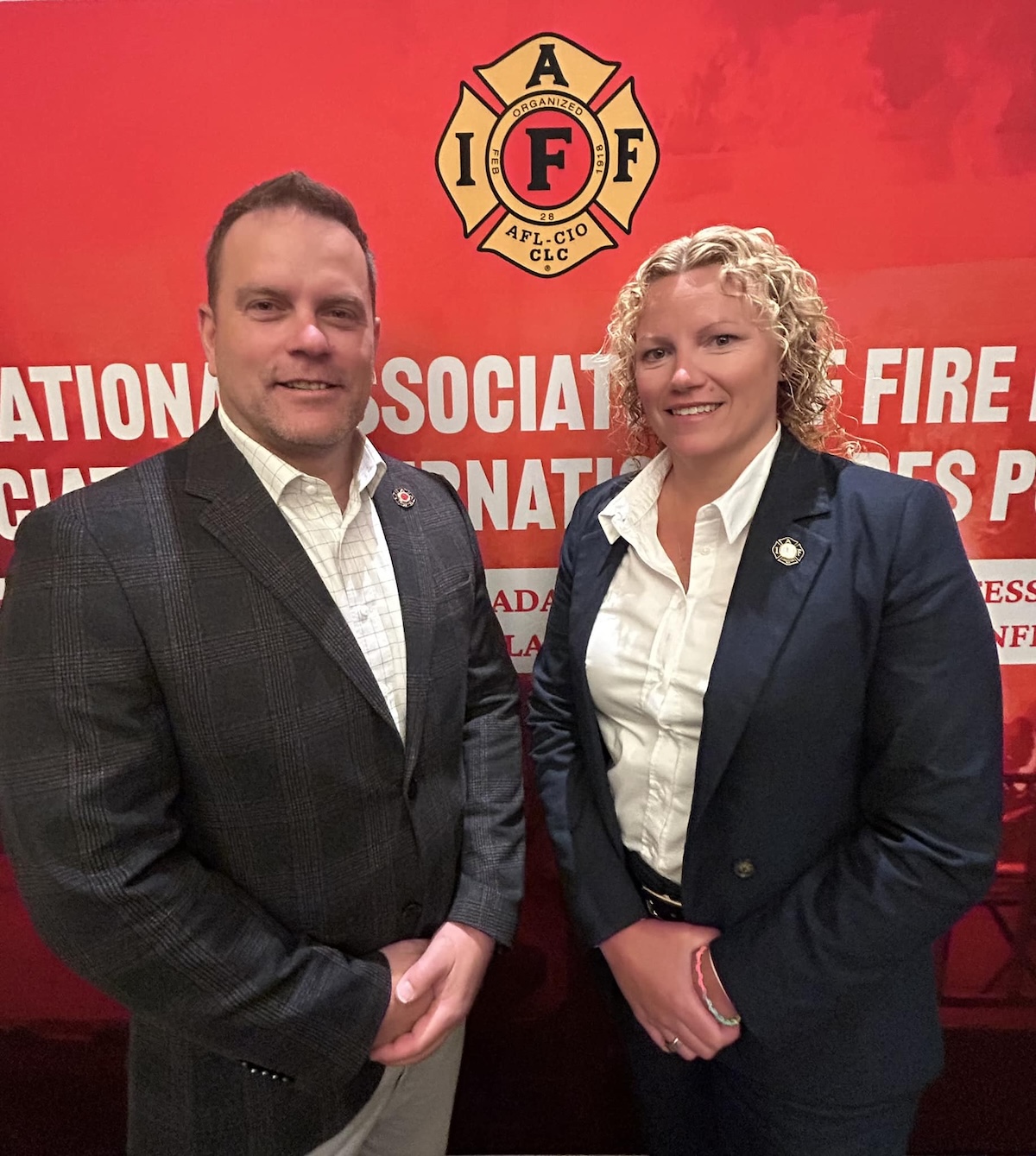
IAFF members in Halifax, Nova Scotia, are working around the clock in extreme conditions to save residents and homes in the face of devastating wildfires ravaging the city’s suburban areas.
Driven by hot, dry temperatures and strong winds, two large wildfires erupted May 29 in the Tantallon and Hammonds’ Plains neighbourhoods northwest of the city, quickly inundating residential areas and forcing thousands to evacuate. While no lives have been lost, up to 200 structures have been destroyed or damaged.
The IAFF is engaged in the wildfire situation in Halifax. IAFF 15th District Vice President David Burry is in the region, and IAFF leadership and senior staff in Washington and Ottawa are in close contact with Local 268 as the situation progresses.
Approximately 50 of Halifax Local 268’s 529 members live in areas affected by the wildfires, including as many as three who have lost their homes. Members whose homes are impacted by the wildfire qualify for financial assistance through the IAFF Foundation’s Disaster Relief program.
Officials said the fires, which cover an area of 837 hectares (2,068 acres), were only 50 percent contained as of Thursday.
IAFF General President Edward Kelly commended the members of Local 268 for responding in extremely difficult circumstances, noting that IAFF members in urban fire departments are frequently on the frontlines of devastating wildfires as they become more common due to climate change and other factors.
“Our Halifax members are doing incredible work responding to the wildfires,” he said. “They have been called upon to protect their neighbours and their community, while some of them are unsure if their own homes are safe. The IAFF is with them every step of the way and will continue to be with them to provide any Disaster Relief support necessary.”
Kelly also noted that IAFF members from British Columbia, Alberta, and Saskatchewan are also fighting wildfires in what has been an unprecedented start to the wildfire season in Canada. In Alberta, 61 wildfires are burning as of June 1, 17 of which are out of control.
Since 2021, the IAFF has been seeking federal government funding to implement the Responding to the Interface (RTI) wildfire response training program in Canada. On June 1, the Canadian government formally announced it will fund the program for a one-year pilot project through the National Forestry Service.



